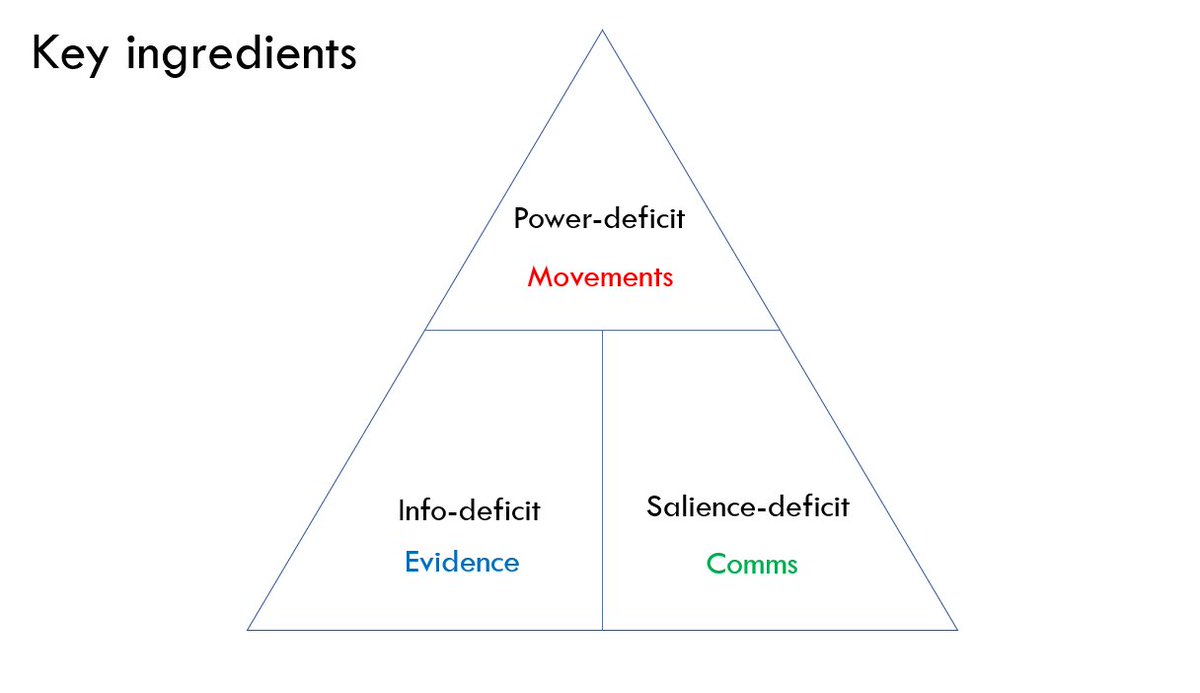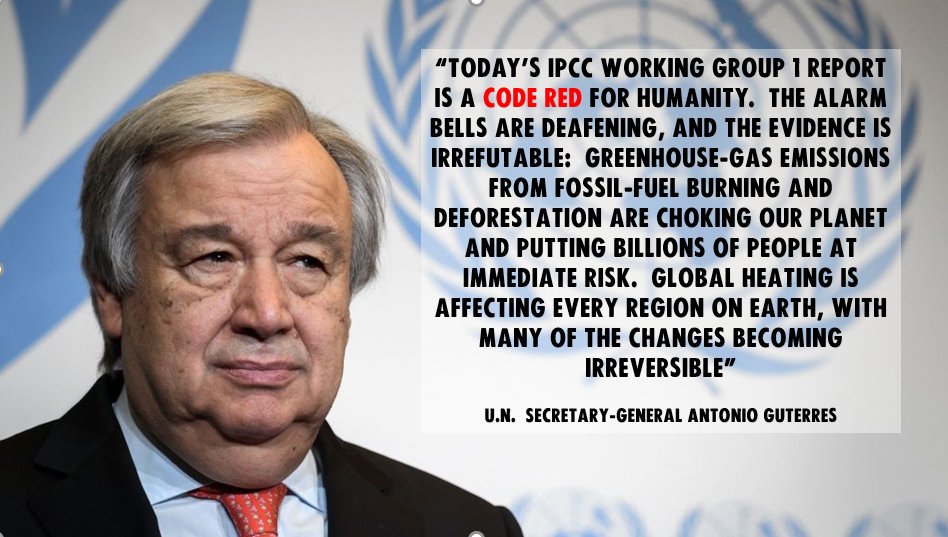
I'd normally not bother wasting time on this nonsense from @benleo444, theres simply more important work than repeatedly putting to bed zombie climate denial talking points, but in solidarity with @JustStop_Oil protesters risking their liberty, here goes🧵
https://twitter.com/benleo444/status/1579582732845608960
@benleo444 @JustStop_Oil Q1. “Why was there a warming period in the Roman times over a couple of hundred years, it was exceptionally warm and then it got cold. There wasn’t any industrial revolution?” 2/n
A. There was no global warm period in Roman times, it was a regional fluctuation due to variability in the climate system 3/n
nature.com/articles/s4158…
nature.com/articles/s4158…
The current global warming is completely unprecedented.
“Updated reconstructions show the recent warming to be anomalous in an even longer-term context, at least the past two millennia” -@MichaelEMann 4/n
pnas.org/doi/10.1073/pn…
“Updated reconstructions show the recent warming to be anomalous in an even longer-term context, at least the past two millennia” -@MichaelEMann 4/n
pnas.org/doi/10.1073/pn…

In fact it's extremely likely that the Earth is now hotter than at any time in the past 125,000 years… 5/n
scientificamerican.com/article/earth-…
scientificamerican.com/article/earth-…
And we also know this warming is *entirely* due to greenhouse gas emissions from human activities, primarily burning fossil fuels - oil, coal and gas 6/n
#JustStopOil #EndFossilFuels
carbonbrief.org/analysis-why-s…
#JustStopOil #EndFossilFuels
carbonbrief.org/analysis-why-s…
Q2. “What do you think about the international declaration signed by 1,100 climate scientists, who said that there is no climate emergency?” 7/n 

A. That document is produced by a climate denial think tank with ties to the fossil fuel industry. Most of the signatories on that declaration have no expertise in climate science 🤦♂️ 8/n
https://twitter.com/davidrvetter/status/1560584932652552192
If you want a complete and thorough debunking of this particular bit of fake news, then this video has you covered.
Now ask yourself why would @GBNEWS spread such disinformation? Don't they factcheck anything? 9/n
Now ask yourself why would @GBNEWS spread such disinformation? Don't they factcheck anything? 9/n
In 2019 over 11,000 actual scientists signed a declaration in the scientific journal BioSceince that says:
“clearly and unequivocally that planet Earth is facing a climate emergency” 10/n
academic.oup.com/bioscience/art…
“clearly and unequivocally that planet Earth is facing a climate emergency” 10/n
academic.oup.com/bioscience/art…
Leading Earth-system scientists writing in @Nature have this to say -
“In our view, the evidence from tipping points alone suggests that we are in a state of planetary emergency: both the risk and urgency of the situation are acute” 11/n
nature.com/articles/d4158…
“In our view, the evidence from tipping points alone suggests that we are in a state of planetary emergency: both the risk and urgency of the situation are acute” 11/n
nature.com/articles/d4158…

The need for #ClimateAction is now incredibly urgent, as the @IPCC_CH latest reports tell us we have a 'rapidly closing window to secure a liveable & sustainable future for all’ 12/n 

@IPCC_CH And the science is clear that means no new fossil fuels projects can go ahead! 13/n
#JustStopOil #EndFossilFuels
#JustStopOil #EndFossilFuels

Q3. “How much data is the recent studies based on, a coupe of hundred of years? Do you know how many years your modeling is based of?” 14/n
A. This is a pretty meaningless & vague question, but depending on the exact question you are asking we have paleo-climate data going back hundreds of thousands & even tens of millions of years.
See here for instance: 15/n
pnas.org/doi/10.1073/pn…
See here for instance: 15/n
pnas.org/doi/10.1073/pn…

Q4. Do you know what percent the UK is responsible for?
A. Yes, according to @OurWorldInData the territorial emissions of the UK accounts for about 0.95% of world’s emissions 16/n
ourworldindata.org/co2/country/un…
A. Yes, according to @OurWorldInData the territorial emissions of the UK accounts for about 0.95% of world’s emissions 16/n
ourworldindata.org/co2/country/un…
Important context left out however, if that we have only 0.85% of the world’s total population - so we’re still using more than our share per-capita, and that’s before we take into account any of our historical emissions! 17/n 

This question is an example whataboutism. A classic discourse of delay.
All countries need to reduce their emissions to net-zero! 18/n
carbonbrief.org/guest-post-how…
All countries need to reduce their emissions to net-zero! 18/n
carbonbrief.org/guest-post-how…

These exact arguments have been debunked by scientists, science journalists and fact-checkers countless times before.
But zombe-like, no matter how many times you put them down they keep coming back! 19/n
abc.net.au/news/science/2…
But zombe-like, no matter how many times you put them down they keep coming back! 19/n
abc.net.au/news/science/2…
This is because those, like @benleo444 & @gbnews, who keep pushing these misleading and debunked talking points aren’t really interested in the truth.
They only want to sow doubt,so as to reduce public support for climate action 20/n
They only want to sow doubt,so as to reduce public support for climate action 20/n
Whether they are witting or not, these ‘merchants of doubt’ are tools for the greatest industry disinformation campaign in history.
Here’s how it works:
documentarymania.com/video/Merchant…
21/n
Here’s how it works:
documentarymania.com/video/Merchant…
21/n
If like me you are sick and tired of climate denial in our media on channels like @GBNEWS, then I urge you to check out and support @stopfundingheat!
May truth prevail!
Good night 😴💚 /End
May truth prevail!
Good night 😴💚 /End
https://twitter.com/stopfundingheat/status/1577992012132925440
• • •
Missing some Tweet in this thread? You can try to
force a refresh














